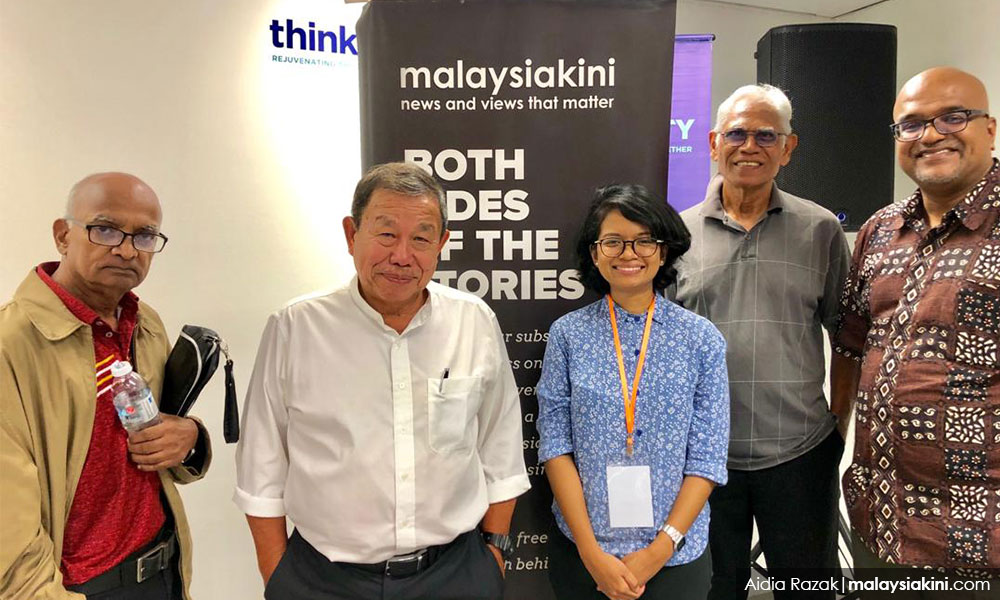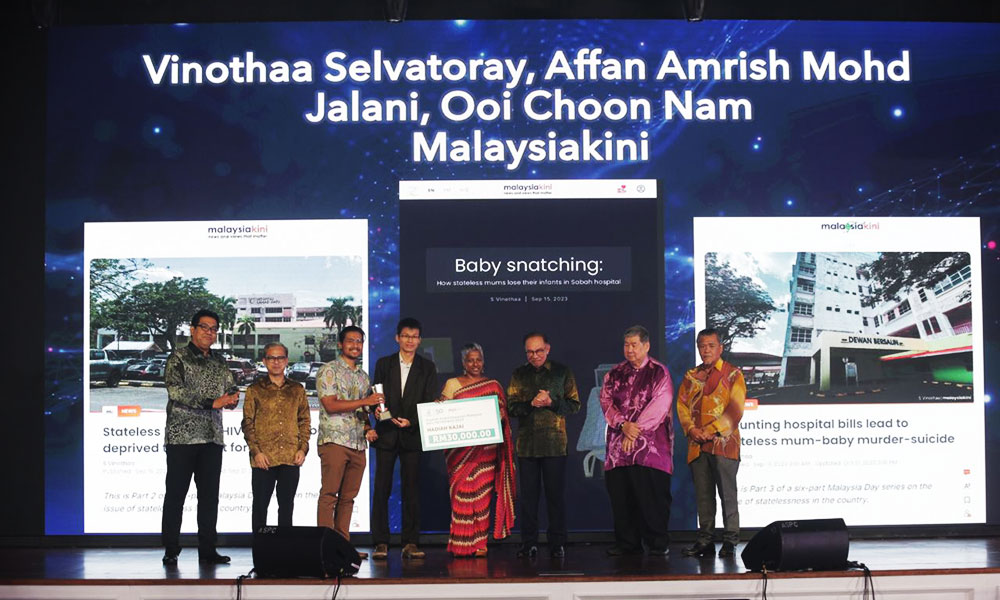As special reports editor, leading investigative and long-form journalism projects at Malaysiakini for the past five years, I have the privilege of doing what many journalists can’t - pursuing topics of interest in depth.
Most journalists cannot do this not because they do not have the ability or desire to, but in this cutthroat industry where the aim of the game is to be the first and fastest, having the time to dig deeper is a luxury.
When an average news journalist may be expected to produce four articles a day, journalists on my team of just two have the ultimate luxury of producing just four in a year.
This is not hyperbole. Each of our investigations takes upwards of a month to complete - they involve data analysis, interviews with multiple sources, corroboration, and verification of information, and finally, producing it in a way that we hope can best create impact.
The production alone - especially when working with the four-person Kini News Lab, the data and multimedia journalism team I lead - could take an extra month.
Challenges aplenty
This is slow journalism, and at the risk of putting my job on the line, it doesn’t make business sense. Despite calls for more investigative journalism worldwide, newsrooms are grappling with the shrinking readership for in-depth reporting and the subsequent struggle to monetise and support such expensive endeavours.
This is why newsrooms around the world have either scrapped or shrunk special reports desks, focusing more on the grind of monetising fast turnaround breaking news content to keep afloat.
This is what sets Malaysiakini apart. In the face of an ever-challenging battle to keep in the black, Malaysiakini continues to support the work that my team and I produce, not just financially.
Investigative journalism - or journalism in general - is a risky endeavour, and not always from the direction that you may think. I am often asked about laws and oppressive policies which stop journalism in Malaysia, and to be fair, they do exist.
Indeed, the RM500,000 fine slapped on Malaysiakini for contempt - not for its journalism but for a reader comment - could have put the company under, had readers not rallied in support with donations.
And when I was threatened by police with arrest under the Sedition Act over activities surrounding our reporting in conjunction with the 50th anniversary of the May 13, 1969 riots, that risk, too, was very real.

What more after then national unity minister P Waythamoorthy, who was to officiate the event, cancelled at the last minute ostensibly due to clashes in engagements.
Litigation as tool to silence
At the same time, the threats also come from private actors. While facing potential police action, there were also hostile groups who threatened to storm our event featuring May 13 eyewitnesses because they said our reporting peddled a version of the riots which they disagreed with.
The same people also launched doxxing attacks against me and other journalists on the project.
The threats of doxxing and cyberbullying remain an ever-present risk to our journalists and, over the years, I have had to formulate a safety protocol for Malaysiakini to anticipate such attacks from vigilantes and coordinated groups, whose attacks may even bleed over to physical harm.
Increasingly, the risk is also coming from deep-pocketed litigious entities of interest, who use strategic litigation to silence us.
Even paying a lawyer to answer a simple letter of demand is equivalent to the monthly salary of several junior reporters. As Malaysiakini - and many other news organisations - are forced to tighten belts to simply survive, this threat looms large.
Similarly, having a lawyer accompany journalists during police questioning can cost as much. It’s not cheap for journalists and news organisations to defend their work - even if they’ve done everything right. And that’s even before we step into a courtroom.
And yet, in the face of many threats, from the state or private actors, and mounting financial challenges, Malaysiakini has remained steadfast in supporting the work of the Special Reports Desk and the Kini News Lab - something which I am both grateful and humbled by.
Persistence is key
Part of its investment has paid off - for the first time in its 25-year history, Malaysiakini won its first Kajai, the prize for the best journalism produced in Malaysia, at the Malaysia Press Institute Award. It was won through a collaboration of the two teams that I led.

Two Society of Publishers Asia prizes - dubbed the Pulitzer of Asia - won by Malaysiakini were also for investigative journalism projects.
The Kini News Lab’s data journalism work has also set a standard for such journalism in Malaysia and the region, garnering international awards and setting a higher benchmark for the industry.
More gratifying than awards and accolades is the impact that these stories have, even just to one person.
After Malaysiakini pursued a suspected case of baby snatching in Sabah - in the Kajai-winning project - Aimah, a mother, whose baby was taken away from her without her consent by the state simply because she was poor and stateless, was finally reunited with her child after two years of searching.
It is a small win, and even that “victory” is bittersweet. The child remains with her adoptive parents but with a promise of access for her birth mother. This has not always been fulfilled, and Aimah continues her heart-wrenching journey of connecting with her child.
Our journey, too, continues.
Aimah is just one marginalised voice among a multitude. Her story underscores why investigative journalism matters, and why Malaysiakini’s steadfast commitment to supporting the work of the Special Reports Desk and Kini News Lab is important.
Our work honours her struggle and determination to find justice, and we continue to cover stories like hers and others which matter.
Subscribe to Malaysiakini today and save 25 percent to support the free press. You can gift our subscription to a friend, too. Alternatively, send your donation here.

